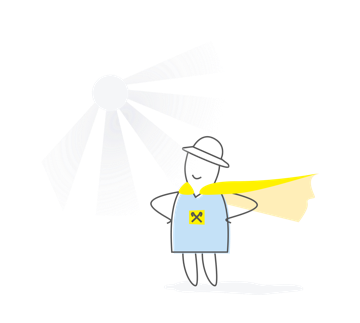Depreciation: will individual entrepreneurs have expenses?
Let us consider, which individual entrepreneurs have the right to allocate depreciation to expenses and under what conditions.
Regardless of the taxation system used by the private entrepreneur, real estate and/or equipment (fixed assets) must be used for business. Let us note straight away that the costs related to the purchase of fixed assets cannot be recognized as expenses in full, and this can only be done gradually in the form of depreciation charges. Only individual entrepreneurs operating under a common system of taxation have such option.
Unfortunately, individual entrepreneurs – single tax payers cannot take advantage of this opportunity, because they mostly keep record of income alone, therefore their expenses do not affect the taxable amount in any way. However, even for those keeping record of income and expenses, the expenses are not tax-deductible either.
Let us remind you that individual entrepreneurs operating under common system of taxation gained the right to include depreciation charges to expenses from 01.01.2017. The costs of purchase of fixed assets and intangible assets, their manufacture and repair, renovation, upgrading and other types of fixed asset improvement (except for current repair) are subject to depreciation.
An individual entrepreneur takes the decision as to whether fixed assets should be depreciated, because it is his right rather than the obligation. If the decision to do so is taken, it should be confirmed by an internal document. For example, by an order, in which the starting date and order of fixed asset depreciation should be indicated.
Only those fixed assets, which are used in the private individual’s business activities and which are not double-purpose objects (meaning the objects, which can be used for private individual’s business and household purposes) may be depreciated. Therefore, land plots, real estate and light motor vehicles are not subject to depreciation (subclause 177.4.6 of the Tax Code of Ukraine).
In order to be entitled to do that, the following conditions should be satisfied:
• Fixed assets and intangible assets must be used in business activities (subclause 177.4.5 of the Tax Code of Ukraine);
• Record of such costs should be kept for each object separately (subclause 177.4.6 of the Tax Code of Ukraine);
• All costs must be documented (subclause 177.4.9 of the Tax Code of Ukraine).
Not all costs related to the purchase and operation of fixed assets can be depreciated. Some of them are included to the reporting period’s expenses in full.
Fixed Assets are material resources, which are used in business activities for more than one year. Fixed assets are buildings and installations, machines and equipment (machine tools, refrigerators, computer equipment, etc.), instruments, appliances and inventory (e.g., furniture, measurement devices) etc. However, only the fixed assets of the value exceeding UAH 20 000 may be depreciated. For VAT payers this amount is calculated exclusive of VAT.
Intangible assets means the resources, which are used for more than one year, however, have no material form, unlike fixed assets. The examples of intangible assets are as follows: software (licenses for the use of the software applications, 1С, Windows, antivirus software, etc.), royalty, licenses, purchased database, etc. The cost of intangible assets is not limited by the Tax Code of Ukraine, therefore, individual entrepreneur may depreciate any intangible asset, which is used in its business activities only (e.g., laptop with the software only used in business activities). It should be also taken into account that the SW is purchased with equipment (e.g., a laptop with Windows operating system earlier installed), therefore, it is not considered a separate intangible asset and treated as one object – fixed asset.
Depreciation calculation rules
In order to calculate depreciation, it is necessary to know the value of object, its use period and commissioning month.
The initial value of the fixed assets includes, in addition to its purchase value, transport costs for its delivery, import duty, cost of its setup and commissioning (e.g., assembly work). For VAT payers all components are calculated exclusive of VAT.
The useful life is determined by the individual entrepreneur, however, it may not be less than stipulated by clause 177.4.9 of article 177 of the Tax Code of Ukraine.
The depreciation is started from the month following the object commissioning month. As the purchase month and commissioning month might not coincide, the commissioning must be documented. We recommend to use the form of certificate No. ОЗ-1 for this purpose.
Depreciation is calculated monthly by straight-line depreciation method. For this purpose, depreciation statement is kept, the form of such statement is developed by the private individual.
The calculated depreciation amount is included to the private individual’s expenses, reducing taxable income.
Individual entrepreneurs operating on a single tax basis may also calculate depreciation for fixed assets used in their business, executing the same documents as individual entrepreneurs operating under the common taxation system. These documents might be useful for them, if they shift to the common system and continue depreciating the objects, which are already in operation.















